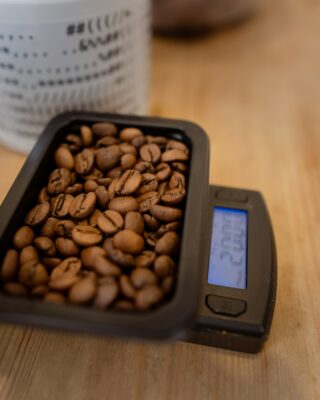In the pursuit of a healthier lifestyle, understanding and accurately measuring the food we consume is paramount. Whether you’re striving for weight loss, muscle gain, or simply maintaining a balanced diet, precise measurements play a crucial role. This week we’ll will delve into the importance of accurate food measurement, methods to measure calorie counts, and effective ways to weigh your food.
Why Accurate Food Measurement Matters:
- Portion Control: Accurate measurements help control portion sizes, preventing overeating and promoting weight management. By understanding serving sizes, you can ensure a balanced intake of nutrients. We often consider the food in front of us as our “portion,” but that can lead to over-eating whether we’re at home or a restaurant.
- Caloric Awareness: Maintaining a healthy weight often involves monitoring calorie consumption. Precise measurements empower you to track your caloric intake, providing insights into your nutritional needs. While standard recommendations for daily calorie intake range between 1500-2500/day, there can be significant variation accounting for age, gender, height, physical activity, etc. Knowing how many calories are in that sandwich doesn’t matter if you don’t know what you need.
- Nutrient Balance: Accurate measurements contribute to a well-balanced diet, ensuring you receive the right proportions of macronutrients (carbohydrates, proteins, and fats) and micronutrients (vitamins and minerals). Calories are just one way to measure food and there is a lot more that should be considered in making healthy choices. Consider today’s post just a launching point for further research and consultations.
How to Measure Calorie Count:
- Use a Food Scale: Invest in a reliable kitchen scale to accurately measure the weight of your food items. This is especially important for calorie-dense foods like nuts, seeds, and oils. Many of these scales can measure different units, too, which will be important. Unfortunately, just holding your meals while standing on a bathroom scale isn’t going to provide useful information.
- Read Nutrition Labels: Pay attention to serving sizes on nutrition labels. These labels provide information on calories per serving, allowing you to make informed decisions about your food intake. Again, the percentages are based on a 2000-calorie intake, which may not be right for you. However, it is useful to compare the nutritional value of similar foods. For example, instead of using heavy cream, could you use Greek yogurt and milk?
- Utilize Online Tools: Take advantage of online calorie calculators and apps that help estimate the calorie content of different foods. Many apps also allow you to track your daily food intake. Here’s a link that goes more into specific apps.
- Weigh Raw vs. Cooked: Keep in mind that the weight of food can change during cooking. Weighing food both before and after cooking provides a more accurate representation of its caloric content. Sometimes it’s more practical to weigh cooked, so it’s important to consider what you’re measuring when. Generally speaking, meats, poultry, seafood, and potato LOSE ~ 25% water weight when cooked. This means if you need to know the raw weight but have already cooked the food, simply weigh the cooked food and divide by 0.75. In the reverse situation, you can find the cooked weight by measuring raw food and multiplying by 0.75. Yay, math!
The Importance for a Healthy Lifestyle:
- Weight Management: Accurate food measurement aids in weight management by preventing excessive calorie consumption, contributing to weight loss or maintenance goals. It forces us to be more aware of what we’re eating and, in snacking cases, why we’re eating (i.e. actually hungry or just bored?). Sometimes we need to reframe how much food we think we need and weighing it helps with that recalibration.
- Nutritional Optimization: Knowing the exact amounts of nutrients you consume allows you to optimize your diet, ensuring you meet your body’s specific nutritional requirements. When putting a number to the food, it’s easier to understand comparative proportions. For example, did I eat four times as much red meat as fruits and vegetables?
- Fitness Goals: Whether you’re an athlete aiming for muscle gain or someone focused on endurance training, accurate food measurement is essential for tailoring your diet to your fitness goals. Again, diets change based on lifestyle, so if you’re ramping up in preparation for a marathon or a former athlete who doesn’t train daily like you did five years ago, your eating habits should reflect that.
In the journey to a healthier lifestyle, precision in food measurement is a powerful tool. By understanding the importance of accurate measurements, learning how to measure calorie counts, and adopting effective weighing methods, you can take control of your nutrition. It can feel like a lot of work at first, but the benefits are over-whelming. The result is a more informed and intentional approach to your diet, supporting your overall well-being and fitness objectives. It also makes it easier to see when and why you might be struggling with dietary changes.
Fortunately, at the A-List Clinic, we’re here to help you. If you want to discuss your specific weight loss goals and make a plan optimized for your life, schedule a consultation today.
Happy eating, A-Listers!
